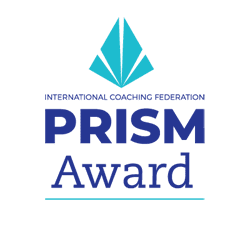Coaching for the Community at Salud Integral en la Montaña
Puerto Rico experienced a major humanitarian crisis in 2017 when deadly Category 5 Hurricane Maria ravaged the island. Emergency responders, hospitals and health centers were put to the test as the entire population was left without power for essential medical equipment, facilities and emergency communication. Salud Integral en la Montaña (SIM), a nonprofit organization of health centers serving disadvantaged residents in Puerto Rico’s mountainous communities, rose to the occasion, thanks in part to a well-established coaching culture. SIM employees equipped with the necessary skills and tools to manage stress and effectively communicate were able to effectively serve the lifeblood of the organization–the patients who are central to its mission. Even as Hurricane Maria’s high winds were battering the island, SIM kept its doors open, making it the only facility that provided care throughout the region.
The healthcare nonprofit credits its recently developed yet robust coaching culture for enhancing employee resilience during a time of rapid mobilization. Fifteen-hour days were not uncommon during this period. Coaching empowered all employees to understand what it means to not just help each other, but to support the community in a time of great need.
The International Coaching Federation (ICF) celebrated Salud Integral’s steadfast commitment to weaving a coaching approach into employee development and client services by recognizing the nonprofit as an Honorable Mention for the 2019 ICF International Prism Award. The Prism Award honors organizations that have achieved the highest standard of excellence in coaching programs that yield discernible and measurable positive impacts, meet rigorous professional standards, achieve key strategic goals, and shape organizational culture.
A Desire For Employee Empowerment
In 2015, SIM set out to empower employees and provide high quality service to patients. The organization designed a pilot internal coaching program to optimize professional growth and build a leadership pipeline, goals that allowed the team to measure its impact.
Initial success led to an expanded program. SIM now offers coaching to all employees. Its stable of three dozen internal coaches is also bolstered by nearly a dozen past and current SIM leaders that are now ICF-credentialed organizational executive coaches.
“SIM is a great example of integrating a coaching culture in an organization to elevate its mission of service,” says ICF Professional Certified Coach Nydia Hernandez, SIM’s Prism Award nominating coach. “So many entities benefit from this. The organization, the employees and most importantly, the patients they serve.”
ROE: A Measurable Impact
SIM’s employees identify desired changes and measure them before and after coaching—a return on expectations (ROE). One of SIM’s top outcomes was increased patient productivity and satisfaction. In fact, employees went from working with 32,000 patients in 2016 to 55,000 patients in 2018. During this time, patient satisfaction increased to nearly 100 percent.
In SIM’s 2018 annual organizational survey, employees identified motivation, sense of belonging and excellent work environment as its three top strengths. Additionally, more than 95 percent of employees surveyed identified SIM’s organizational culture as “great.”
A Personalized Approach To Growth
Employees and managers now view coaching as the preferred professional development method because of its personalized focus. Once-passive team members are now motivated to take a more active role in training new employees.
Buy-in from the top levels of management was critical for SIM to cascade coaching throughout the organization. The annual budget now includes a dedicated line-item for coaching. Employees at all levels use a coaching approach in their day-to-day routines.
SIM also is leading the way in applying a coaching approach in a hospice care setting. Hospice employees are able to use coaching skills, such as engaging in active listening and using powerful questions as a way to manage relationships with families and caregivers of homebound and end-of-life patients.
In the aftermath of Hurricane Maria, health centers such as SIM played a vital role in Puerto Rico’s recovery. The ability to meet the needs of the community on a daily basis—as well as times of uncertainty following a once-in-a-lifetime natural disaster—require agile teams for whom empathy, communication and support are second nature. Today, the nonprofit deploys its coaches to showcase how other community organizations can optimize resources and empower employees to impact more lives. The creation of a coaching culture has transformed SIM’s organizational fabric and led to a workplace where employees are now eager to take charge.


